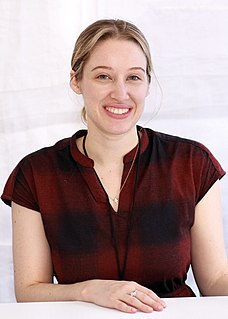A Quote by James C. Collins
Great companies foster a productive tension between continuity and change.
Quote Topics
Related Quotes
There cannot be forgotten the great possibilities of mass media in promoting dialogue, becoming vehicles for reciprocal knowledge, of solidarity and of peace. They become a powerful resource for good if used to foster understanding between peoples, a destructive 'weapon' if used to foster injustice and conflicts.
The greatest challenge to organizations is the balance between continuity and change. You need both. At different times, the balance is slightly more over here, or slightly more over there, but you need both. And balance is basically the greatest task in leadership. Organizations have to have continuity, and yet if there is not enough new challenge, not enough change, they become empty bureaucracies, awfully fast.


































